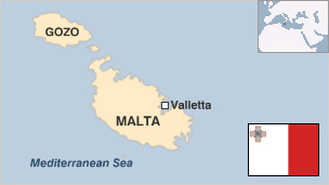
Facts and stats about Malta
The economy of Malta is very open which means that there are no impediments to free market activity. It is next to Luxembourg in the entire European Union. Nevertheless, growth still depends on the prevailing economic situation in the Union which takes in almost half of exports from Malta. Production of electronic components and pharmaceutical commodities are expected to remain upbeat until the end of 2014. The tourism industry with 25 percent of GDP still supports the services sector. The number of tourists (85 percent coming from Europe) has been increasing steadily since 2010. Malta is a widely held holiday destination and tourism is the nation's principal source of income.
On the domestic demand side, household spending is expected to go up this year in line with the labor market’s toughness despite the economic downturn. The unemployment rate has been down by 7 percent since 2011. Public investment will remain secure in 2014 although fiscal restrictions made necessary by the Treaty of Maastricht continue. The government expects that the banking sector’s strength will uphold the supply of credit and ensure private sector financing. Inflation will remain low because of energy price cuts. Electricity and water taxes are expected to decrease by 25 percent and five percent respectively for households (2014) and companies (2015) to regulate inflation.
The political system in Malta is a parliamentary representative democratic form of republic with the President of Malta as the constitutional head of state. The President of Malta has executive authority. On the other hand the Prime Minister and the cabinet maintain control of the government. The Parliament has legislative power with the House Speaker presiding over the unicameral House of Representatives. Malta obtained independence from Britain in 1964. It earned the distinction of being the smallest of 10 countries to join the European Union in May of 2004. It also joined the Euro Zone in 2008.
- Agriculture 93
- Background 14
- Conflict 1
- Cost of living 53
- Crime 105
- Culture 24
- Disasters 2
- Economy 2361
- Education 658
- Energy 417
- Environment 187
- Geography 85
- Government 179
- Health 242
- Import 7
411,277
Population. Ranked 175th in 2013.
$20,847.59
GDP per capita. Ranked 34th in 2012.

320 sq km
Sq. km. Ranked 187th in 2008.